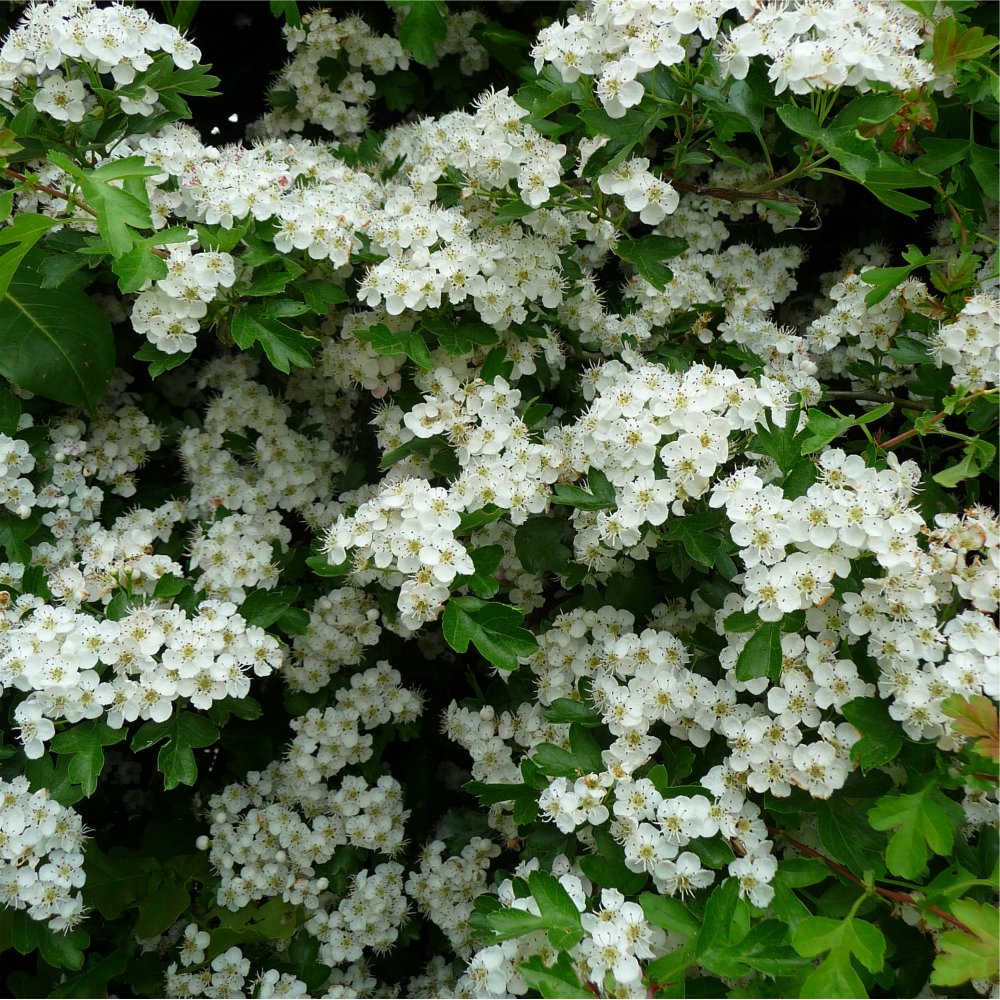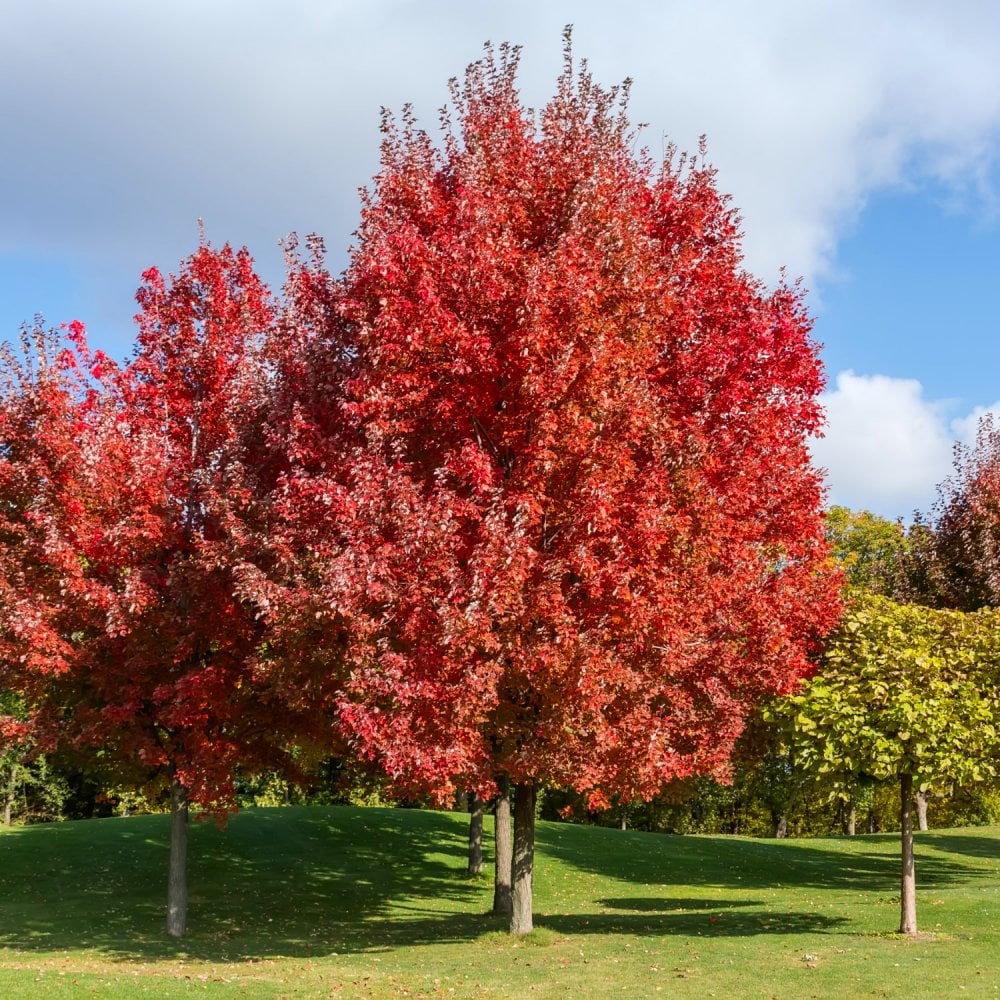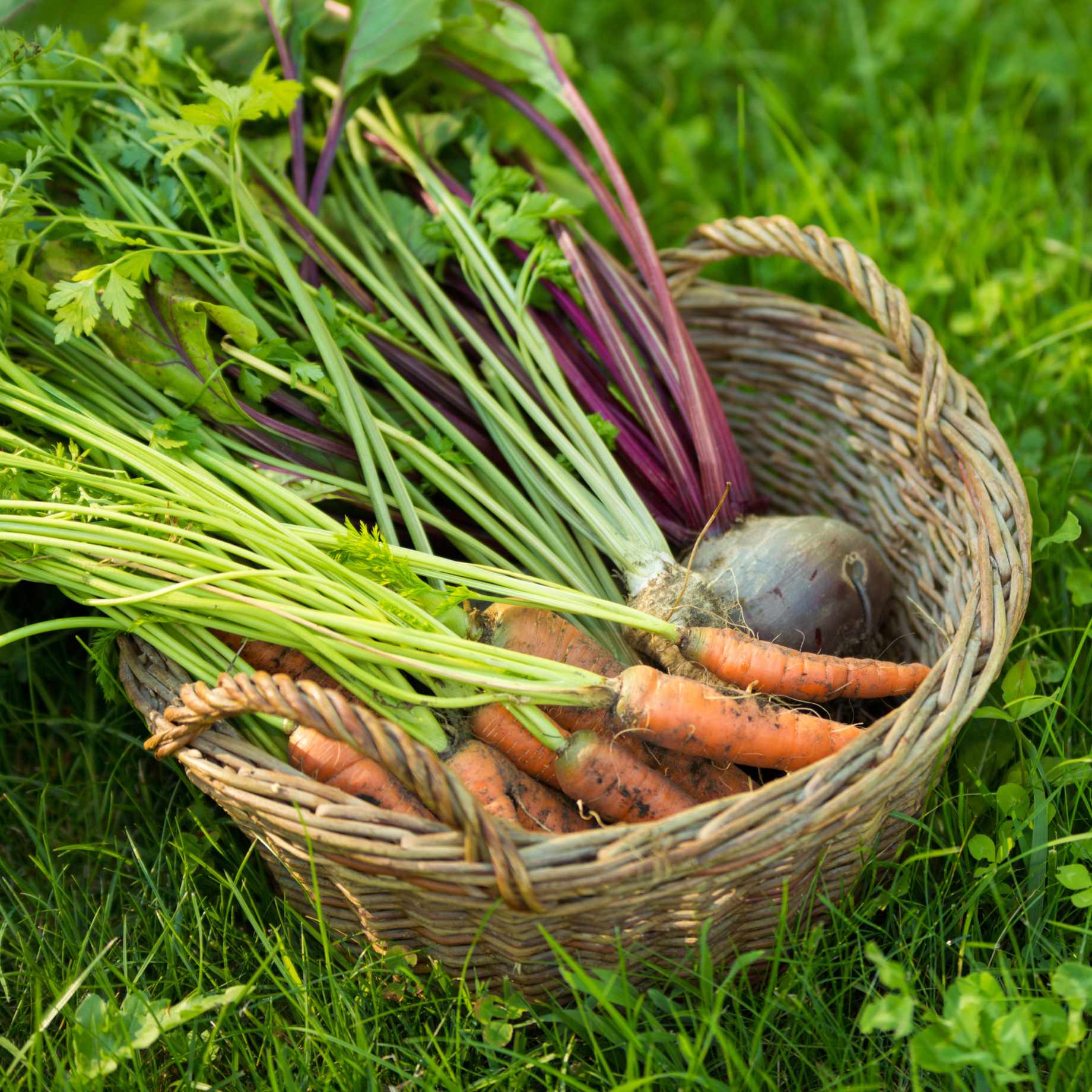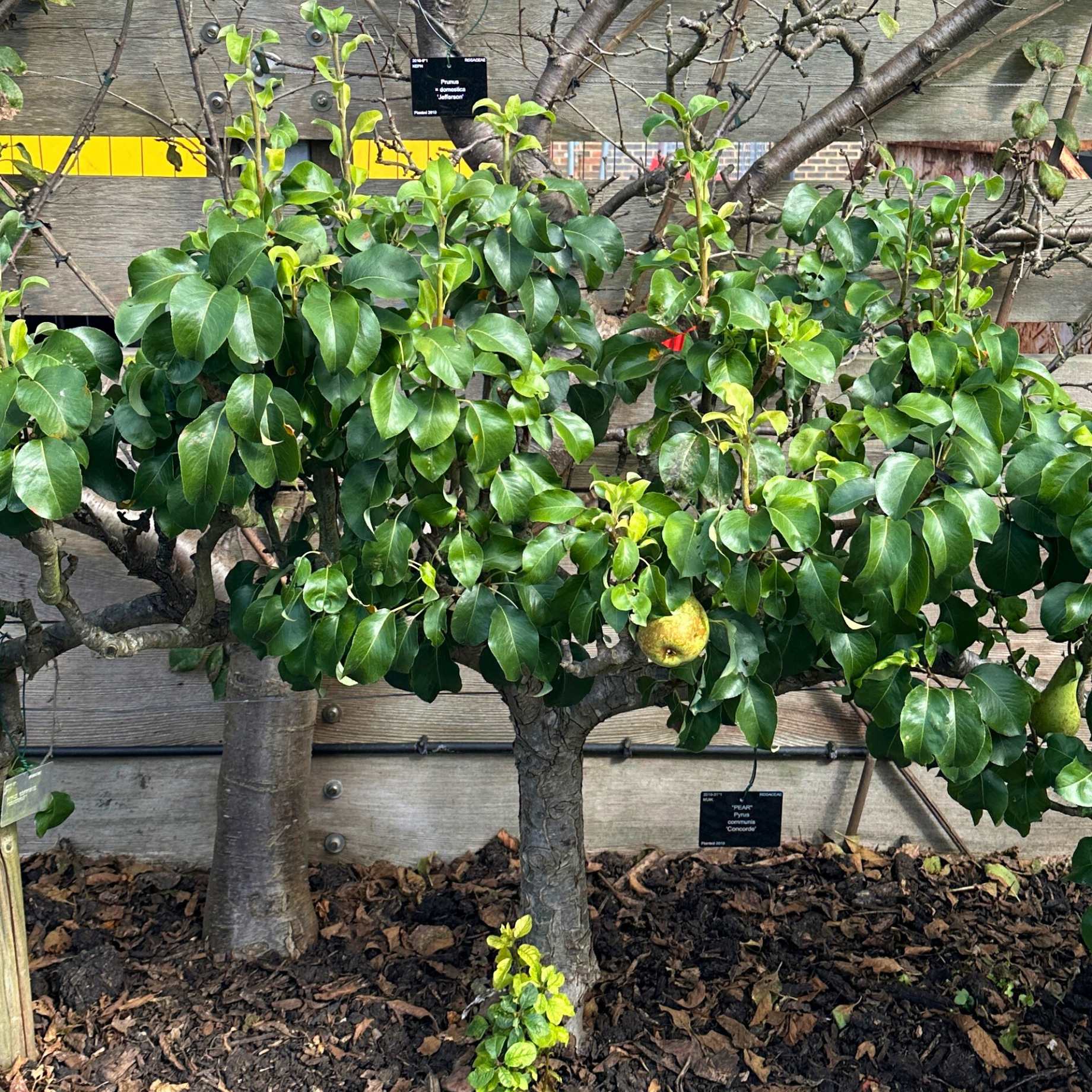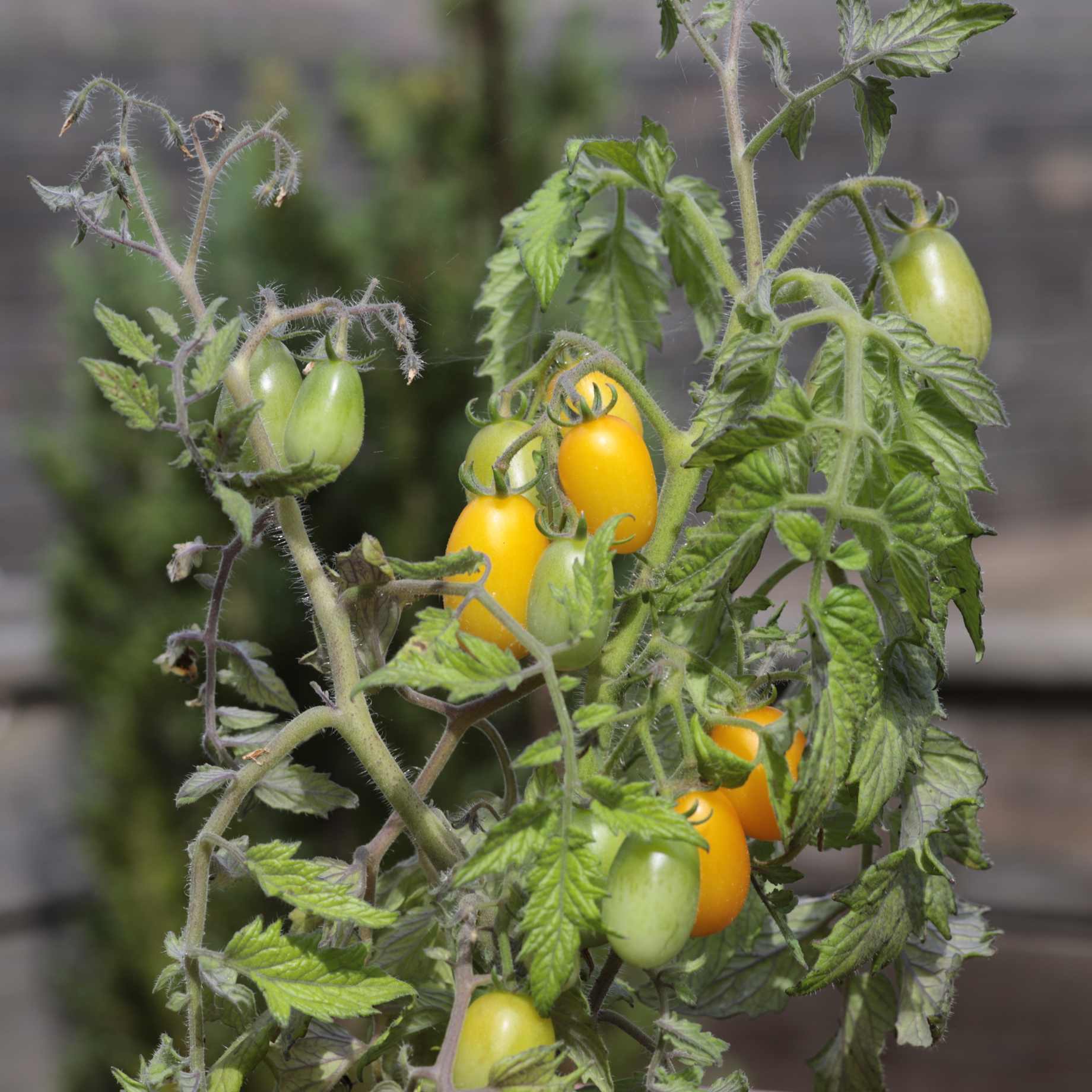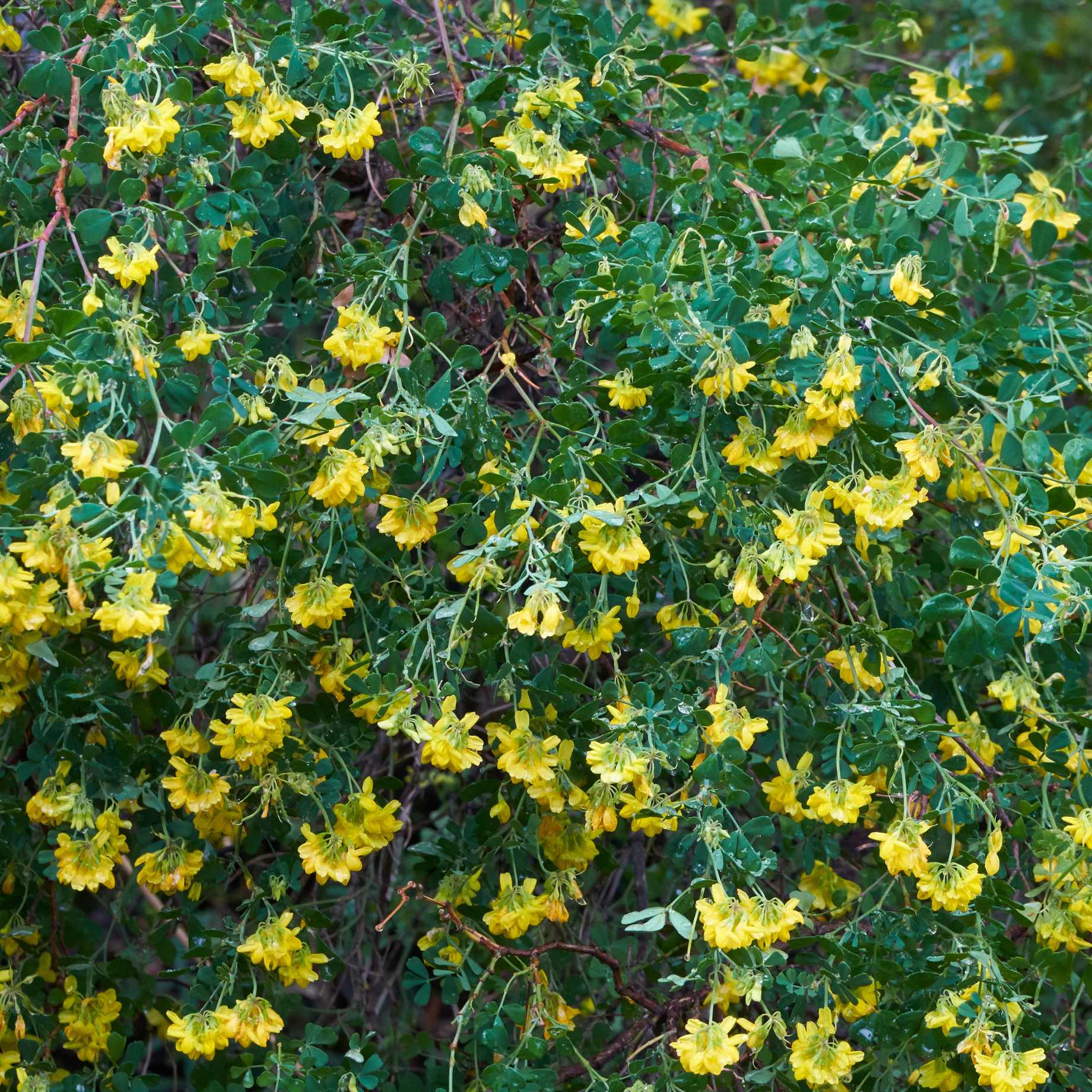Key features
Final size5 x 4 metres in 20 years
FoliageLobed leaves with autumn colour (deciduous)
FlowersWhite flowers in late spring, small red haws in autumn
Eco benefitsNative to UK, good for pollinators, food for birds
PositionFull sun to part shade, including exposed sites
SoilPrefers well-draining soil, wet-tolerant
Description
This native, small bushy tree or large shrub is very tolerant of coastal, exposed, polluted and damp sites and is popular with wildlife. Crataegus monogyna offers wonderfully varied seasonal interest, starting with dark green, deeply lobed, glossy foliage that acts as a foil to fragrant single white flowers with red anthers in May. After flowering, small dark red haws are produced which are popular with the birds. Leaves turn yellow and bronze in the autumn before falling.
Crataegus monogyna is often used in native hedging mixes, but as a tree you can expect a height and spread of 5 x 4 meters in 20 years. As the name suggests, Common Hawthorn has sharp thorns on its branches which provides a safe nesting place for birds.
AKA Common Hawthorn, Bread and Cheese, Hawthorn, May, Quick, Quickthorn, Whitethorn, May Blossom Tree, Thorn Tree
Planting Steps
1Preparation
- Pot-grown plants can be planted at any time of year, whereas bare roots need to be planted between November and March.
- Clear weeds and grass within a metre of the planting hole.
- Dig a hole as deep as the root mass and twice as wide.
- To help your plant establish more effectively, sprinkle Rootgrow in the hole.
2Planting
- Gently loosen the roots and place into the planting hole.
- Ensure the top of the plant’s compost is flush with the level of the surrounding soil and the graft union or collar of the tree is above ground level.
- Mix 50% of the original soil with 50% compost.
- Fill in the hole, firming the soil gently.
3Last Steps
- Water generously around the base of the plant.
- If you are planting either a single stem tree or mature standard tree, we recommend adding a staking kit and rabbit guard.
Aftercare Advice
Trees and shrubs require a good watering regime for a couple of years whilst they establish. Water well and regularly through spring and summer, increasing in hot or dry weather. If planting in autumn, you may only need to water a little. It is advisable to keep the area free of competing weeds and grass during this period.
For more detailed advice and video guides, please visit our Help & Advice section.

